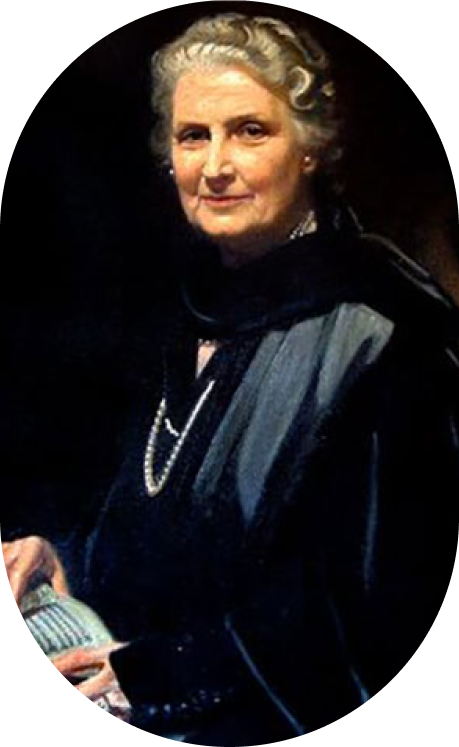

The Montessori Method is an educational philosophy and approach developed by Dr. Maria Montessori, an Italian physician and educator, in the early 20th century. This method is designed to foster a child's natural curiosity, independence, and love for learning by creating a supportive environment that aligns with the child's developmental needs.
Grounded in the developmental needs of the child for a balance of freedom and limits, the Montessori approach thrives in a meticulously arranged environment. This environment ensures access to a diverse array of materials and experiences, fostering intellectual, physical, and social development. Additionally, it instills grace and courtesy, providing a holistic foundation for the child's growth.
The Montessori curriculum includes areas of Practical Life which consist of exercises to enhance motor skills used in everyday life; Sensorial Education to explore the child's senses; Cultural Arts to learn about the world around them; Math to understand mathematical functions in concrete form; and Language to teach vocabulary, writing, and reading skills.
For more than a century, Montessori education has effectively supported children and families globally. The foundational principles persist, and for valid reasons. Our practices consistently align with the latest research in education and human development. As we venture into the future, we firmly believe that Montessori is well-equipped to prepare children for the challenges and opportunities ahead. Here are some key factors that attract parents to Montessori schools:
Montessori education places the child at the center of the learning process. Parents appreciate the individualized and child-driven nature of the curriculum, allowing each child to progress at their own pace and according to their unique interests and abilities.
Montessori education places the child at the center of the learning process. Parents appreciate the individualized and child-driven nature of the curriculum, allowing each child to progress at their own pace and according to their unique interests and abilities.
The Montessori method encourages independence from an early age. Parents value the emphasis on developing self-reliance, decision-making skills, and a sense of responsibility, fostering a child's confidence and autonomy.
Montessori education is grounded in deep respect for each child. Parents appreciate the approach of treating children with dignity, acknowledging their individual needs, and fostering a positive and supportive learning environment.
Montessori classrooms are characterized by hands-on, experiential learning. Parents see the value in this approach, as it not only enhances academic understanding but also allows children to develop critical thinking, problem-solving, and creativity through direct engagement with materials.
Many parents choose Montessori education for its long-term benefits. Research suggests that Montessori-educated children often exhibit strong academic performance, creativity, and adaptability, providing a solid foundation for future success.
Montessori classrooms are carefully designed to facilitate learning and exploration. Parents recognize the significance of the prepared environment, which promotes order, structure, and a sense of calm, creating an optimal space for focused learning.
Montessori nurtures a genuine love for learning. Parents observe that children in Montessori environments often develop a natural curiosity, enthusiasm for discovery, and a positive attitude toward education that lasts throughout their academic journey.
Montessori education places a strong emphasis on social development. Parents appreciate the opportunities for collaboration, communication, and conflict resolution, fostering strong interpersonal skills and a sense of community.
Montessori's Cultural Arts component introduces children to a global perspective, fostering an appreciation for different cultures and promoting a sense of interconnectedness. Parents value the broader worldview instilled in their children.